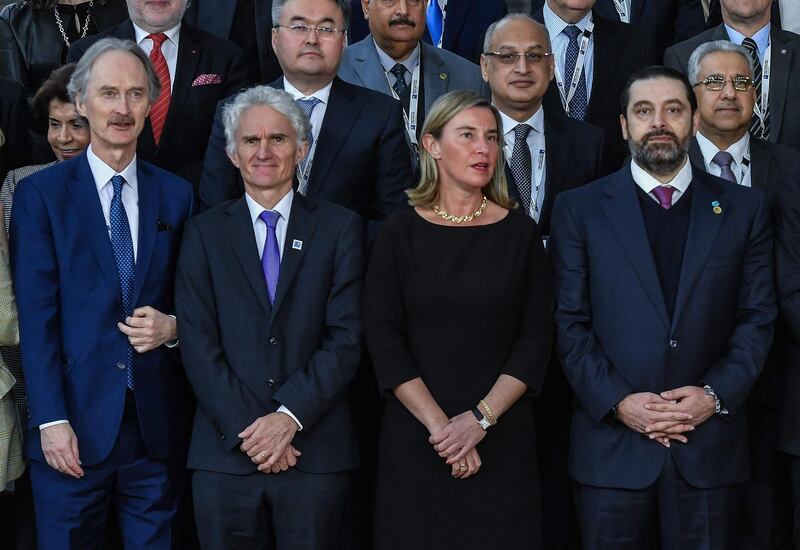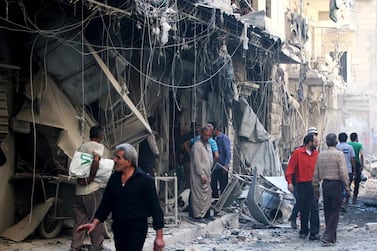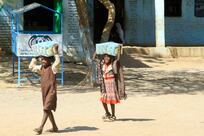Syria’s rebel-held Idlib province could become the worst humanitarian catastrophe of the 21st century if it faces a large scale military assault, the United Nations Office for the Coordination of Humanitarian Affairs (OCHA)] warned during the opening remarks of the third Brussels conference for European member states to pledge humanitarian assistance to Syria.
“We are increasingly alarmed by situation in Idlib,” the UN Under-Secretary-General for Humanitarian Affairs and Emergency Relief Mark Lowcock said on Thursday.
Idlib is one of the last Syrian provinces outside the control of President Bashar Al Assad and the UN estimates 3 million people are living in the area.
This year the UN is asking for nearly $9 billion (Dh33 bn) in humanitarian aid to help Syrians inside the country and in the region.
As the conflict enters its ninth year, 11.7 million Syrians require humanitarian aid, 5 million urgently. More than 2 million children have been out of school for years, and last year was the deadliest yet for Syrian children, with 1,106 killed, according to UNICEF.
Mr Lowcock stressed that the staff of humanitarian agencies continue to face “unacceptable levels of violence and attacks” and called for unconditional humanitarian access.
EU High Representative Federica Mogherini renewed calls for a negotiated intra-Syrian political process brokered by the UN that takes into account the will of the Syrian people.
“Solution is not only about power politics,” Mrs Mogherini said. “First and foremost it is about people.”
The High Representative said the EU is ready to finance the reconstruction of Syria once a political transitional process is underway.
“I personally asked Astana guarantors who are here with us today to strongly support the establishment of the constitutional committee and the confidence building measures between parties, including the release of detainees,” Mrs Mogherini said.
The Astana process was launched in January 2017 by Damascus allies Russia and Iran, allies of Damascus and rebel-backer Turkey.
“More steps will then have to be taken towards an inclusive and reconciled Syria," Mrs Mogherini continued. "Justice and reconciliation are two sides of the same coin.”
Representative of the major host countries for Syrian refugees – Lebanon, Turkey and Jordan – stressed the need for refugee returns, as well as renewed economic support.
Lebanon’s Prime Minister Saad Hariri said: “There will be no additional funding allocated [in the Lebanese budget] in 2019 or the following years to address the need of the displaced,” and called on the humanitarian community to increase support to Lebanon by $100 m (Dh367.3 m) per year to tackle resource-related issues and waste management.
The Brussels conference aims to renew the commitments of the EU and member states to support people in need in Syria, Syrian refugees in the region, and host countries. Last year $6 bn (Dh22 bn) in grants were pledged at the conference.
So far this year, donors have made $1.7 billion of the conference pledges available.






